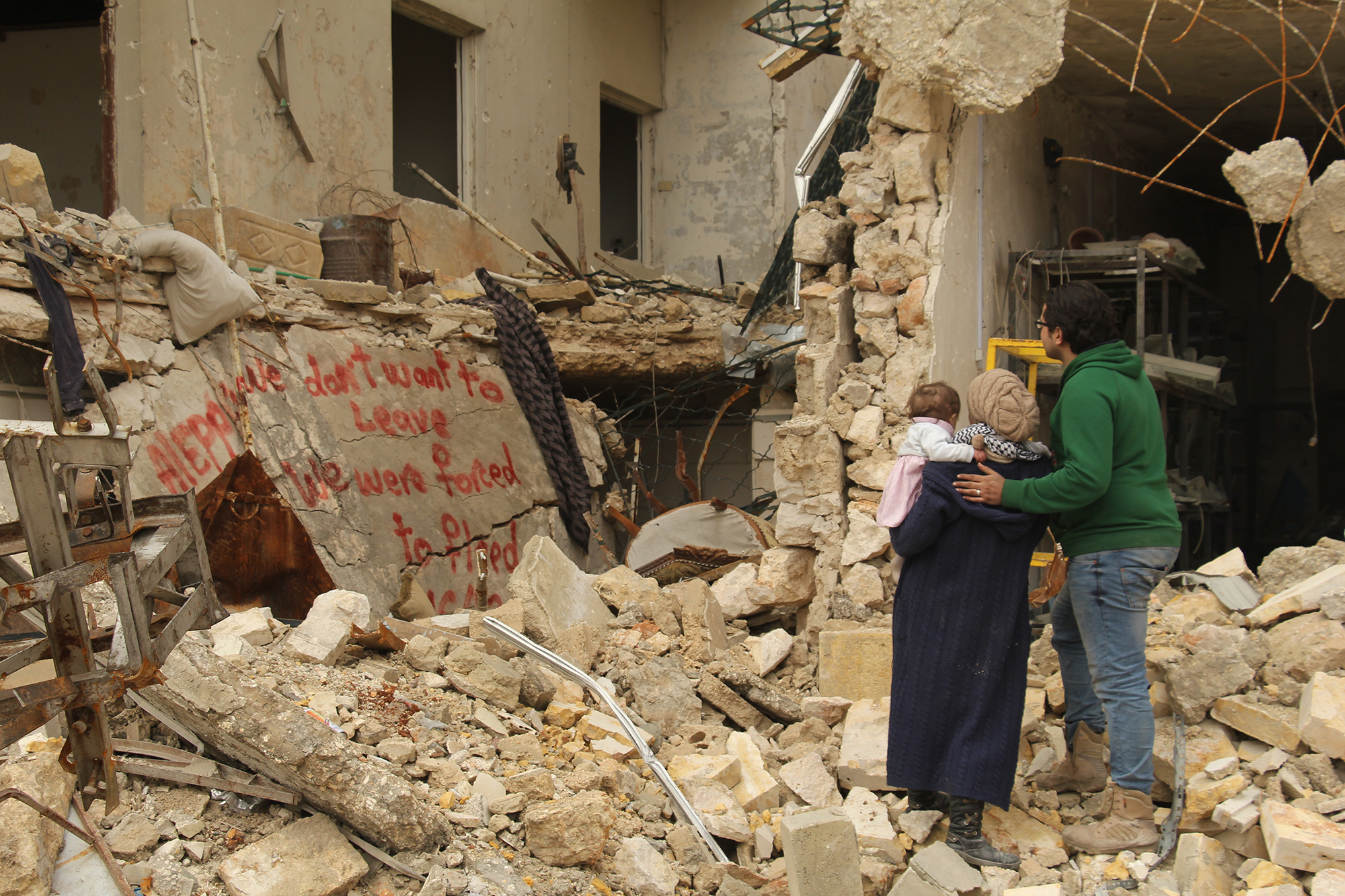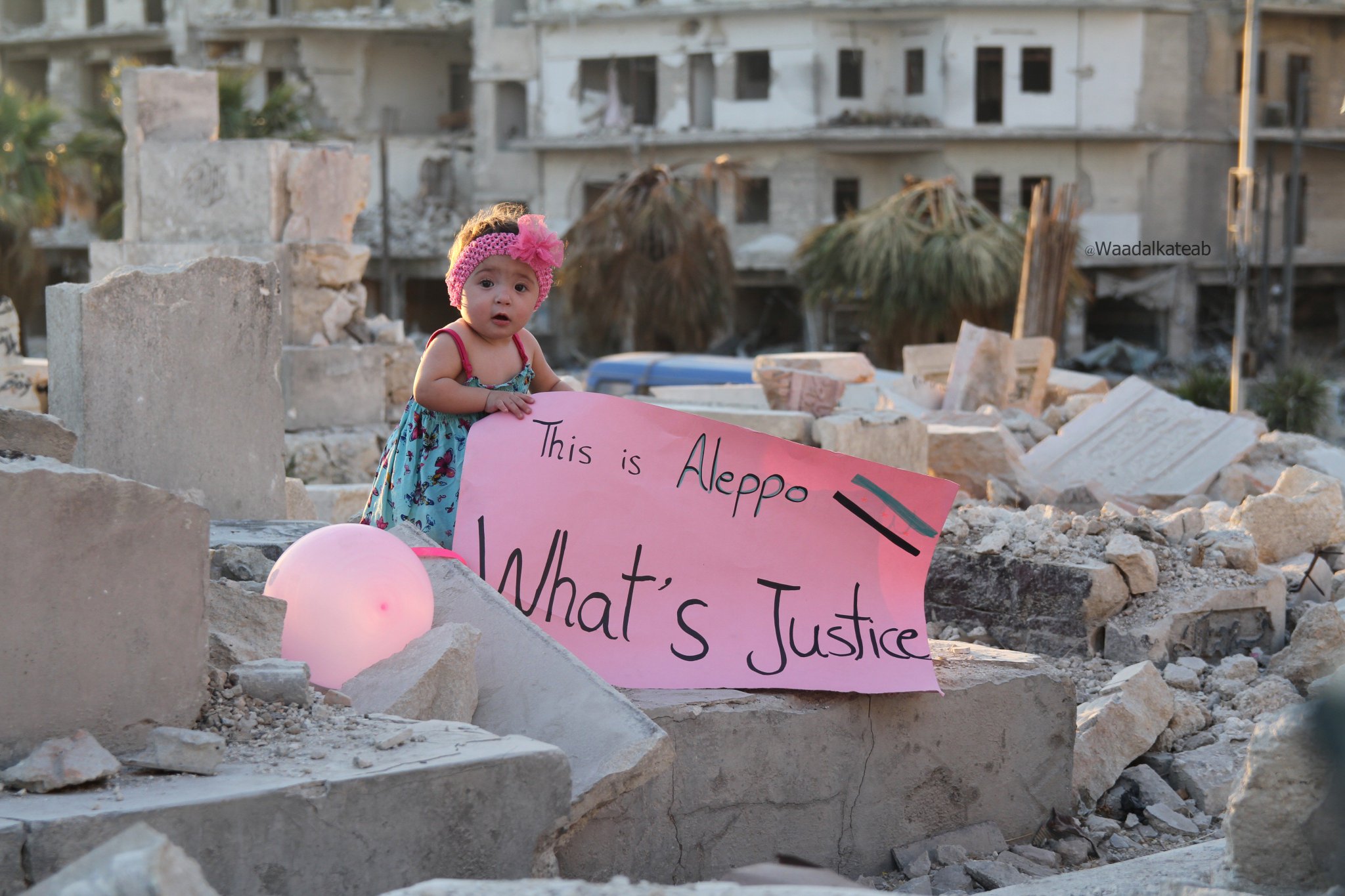People who idly use the phrase “it’s like living in a war zone” when considering their domestic mess should see Waad al-Kateab’s documentary For Sama.
Everyone should see it, in fact. Waad lived in a terrifying war zone – besieged East Aleppo in Syria – and saw babies, children, and adults killed daily as she, her doctor husband Hamza, and their neighbours attempted to go on with their lives as part of the rebel population opposed to Bashar al-Assad’s brutal dictatorship. They were inches from death every second. Among friends who perished were the paediatrician who delivered Waad’s first daughter, Sama, and another of Hamza’s colleagues, a burly, smiling guy shown goofing around with him in the film’s early footage.
An activist and self-taught video journalist, Waad was in her mid-20s and four-and-a-half years into digitally documenting Syria’s Arab Spring insurgency and the resulting civil war when she gave birth to Sama on January 1 2016. With the Assad regime and its Russian allies relentlessly bombarding Aleppo – killing an estimated 31,183 citizens, maiming thousands more, and skeletonising multiple buildings – Waab and Hamza had the opportunity to leave the six-month-old Sama with Hamza’s parents in Turkey. Refusing to be tyrannised, the couple scurried back into the city through the front lines, babe in arms – Waad filming them all the while. This death-defying sequence is standard in For Sama, which the English human rights filmmaker Edward Watts helped Waad shape in London after her family and other survivors were permitted to leave Aleppo in December 2016. Waad was pregnant at the time and subsequently had a second daughter, Taima. Watching the film, you’ll want to know the fate, too, of Waad’s closest friend Afraa, an imperturbable teacher and school organiser, her husband Salem, and their three kids Wisam, Zain, and Naya (we get to know them all). The same goes for the pulseless baby pulled from his wounded mother’s womb by an obstetrician and his team during an emergency Caesarean: their determination that the boy will breathe and have a life directly defies Assad and Putin’s contempt for humanity.
This death-defying sequence is standard in For Sama, which the English human rights filmmaker Edward Watts helped Waad shape in London after her family and other survivors were permitted to leave Aleppo in December 2016. Waad was pregnant at the time and subsequently had a second daughter, Taima. Watching the film, you’ll want to know the fate, too, of Waad’s closest friend Afraa, an imperturbable teacher and school organiser, her husband Salem, and their three kids Wisam, Zain, and Naya (we get to know them all). The same goes for the pulseless baby pulled from his wounded mother’s womb by an obstetrician and his team during an emergency Caesarean: their determination that the boy will breathe and have a life directly defies Assad and Putin’s contempt for humanity.
Culled from 500 hours of footage, which was mosaicked together in non-linear form by editors Chloë Lambourne and Simon McMahon, Waad’s video diary is addressed by her in voiceover as a letter to Sama. Moment by moment, it presents Waad’s lived experience of the siege with breath-on-your-face intimacy. The main settings are the first hospital set up by Hamza, its successor (after the first is obliterated), and the couple’s home and yard, which Waad dreads to leave.
Waad and Hamza aren’t yet a couple when, as a fourth-year economics student regarded as “headstrong” by her parents, Waad turns her camera on Hamza, an activist doctor helping injured revolutionaries. “I was always filming him,” she observes, needing to add nothing further about her feelings. She soon films their wedding and the moments after Sama’s birth. The family lives mostly in the hospital so Hamza can go straight to work. In the 20 days of the second hospital, 6,000 patients were admitted and 890 operations performed, Hamza says. What's unique about For Sama is its female perspective on enduring a blitz. Kids are front and centre, as you might expect from a subjective documentary directed by a woman who is pregnant and becomes a mother during its making. “There’s lots of airstrikes today, right? But we haven’t been hit, yay!” Waad says to Sama, as the child, holding her nursing bottle, watches her mother film her; they play peek-a-book, Sama drops the bottle, she smiles.
What's unique about For Sama is its female perspective on enduring a blitz. Kids are front and centre, as you might expect from a subjective documentary directed by a woman who is pregnant and becomes a mother during its making. “There’s lots of airstrikes today, right? But we haven’t been hit, yay!” Waad says to Sama, as the child, holding her nursing bottle, watches her mother film her; they play peek-a-book, Sama drops the bottle, she smiles.
The next shot is of a helicopter flying overhead. A barrel bomb explodes; ambulance sirens wail. Heading for safety in the hospital basement with Sama in her arms, Waad films an orderly hurrying from the street with a limp little boy in his arms. The boy is called Mohammed. His dust-covered older brothers, perhaps eight and 12, explain to Waad that he was outside their house when it was struck. They kiss Mohammed’s lifeless face after he has been wrapped in blue paper; their mother rushes to the scene to take his body away.
Such juxtapositions of tenderness and horror permeate For Sama. Blood pools on the hospital floor to the extent that Waad starts to see red everywhere. But she never flinches or turns her camera away from the hell, except to preserve the dignity of people in the instant of dying – a soulful-looking young girl among them. It's a film that makes all entertainment movies seem beside the point, and a film that shames the West and the UN security council for letting Assad wage war against his people, as if he were another Stalin.














Add comment